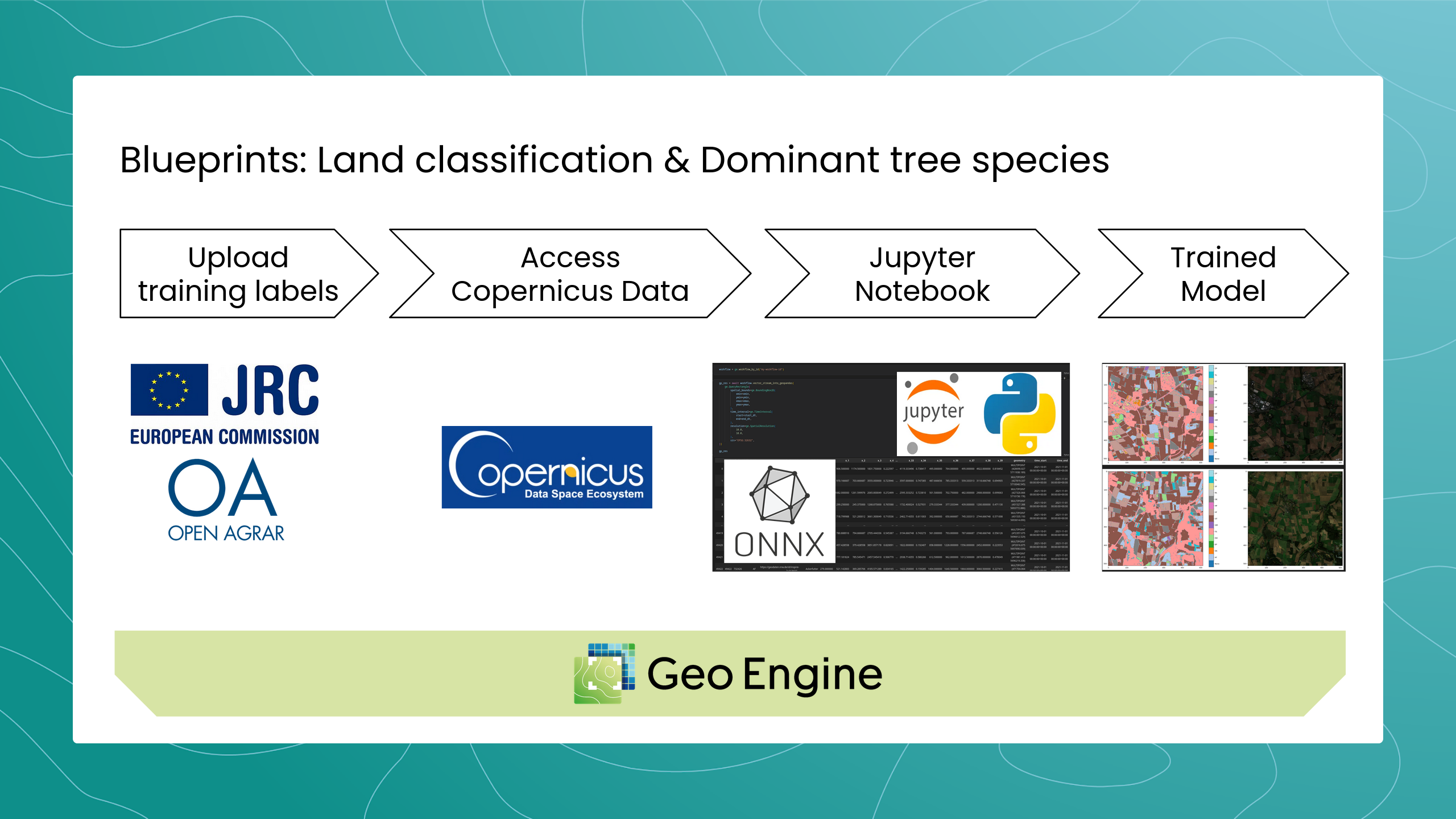
October 15, 2025
We have successfully completed our incubation phase at the ESA BIC Hessen (European Space Agency Business Incubation Centre). The program provided the necessary resources to develop the Geo Engine platform into a powerful and user-friendly service for machine learning on Earth observation data and to solidify its technological foundation.
At the core of the development was a pipeline for Random Forest (RF) Machine Learning (ML), enabling users to apply modern ML techniques directly to extensive satellite image time series.
Key Achievements and Technological Advances
-
Standardized ML Model Exchange:
To ensure maximum flexibility and future-proofing, the open ONNX format was integrated. This allows for the standardized and efficient exchange and deployment of various machine learning models such as Random Forest, Gradient Boosted Trees, and Convolutional Neural Networks. -
Blueprints for Users:
We simplified interaction with the Geo Engine by providing model training examples in the form of Jupyter Notebooks (blueprints). These templates enable users to easily adapt available pipelines to their specific datasets. -
Focus on Copernicus Data:
The pipeline leverages the freely available and high-resolution Sentinel-2 data from the European Copernicus program. Validated use cases include land cover classification and the identification of dominant tree species in Germany.
Focus on Sustainability (ESG)
The successful incubation positions us as a relevant player in data-driven sustainability analysis. The platform delivers precise, fact-based insights from Earth observation, helping companies and organizations demonstrate their contributions to ESG (Environmental, Social, Governance) goals. In the coming year, we will launch a series of ESG-related projects built on the capabilities of the Geo Engine.
The incubation is considered a complete success by both us and the ESA BIC, marking a significant milestone in the development of the Geo Engine.
🛰️ Watch the project completion video here: https://youtu.be/1186CBUKm8Y